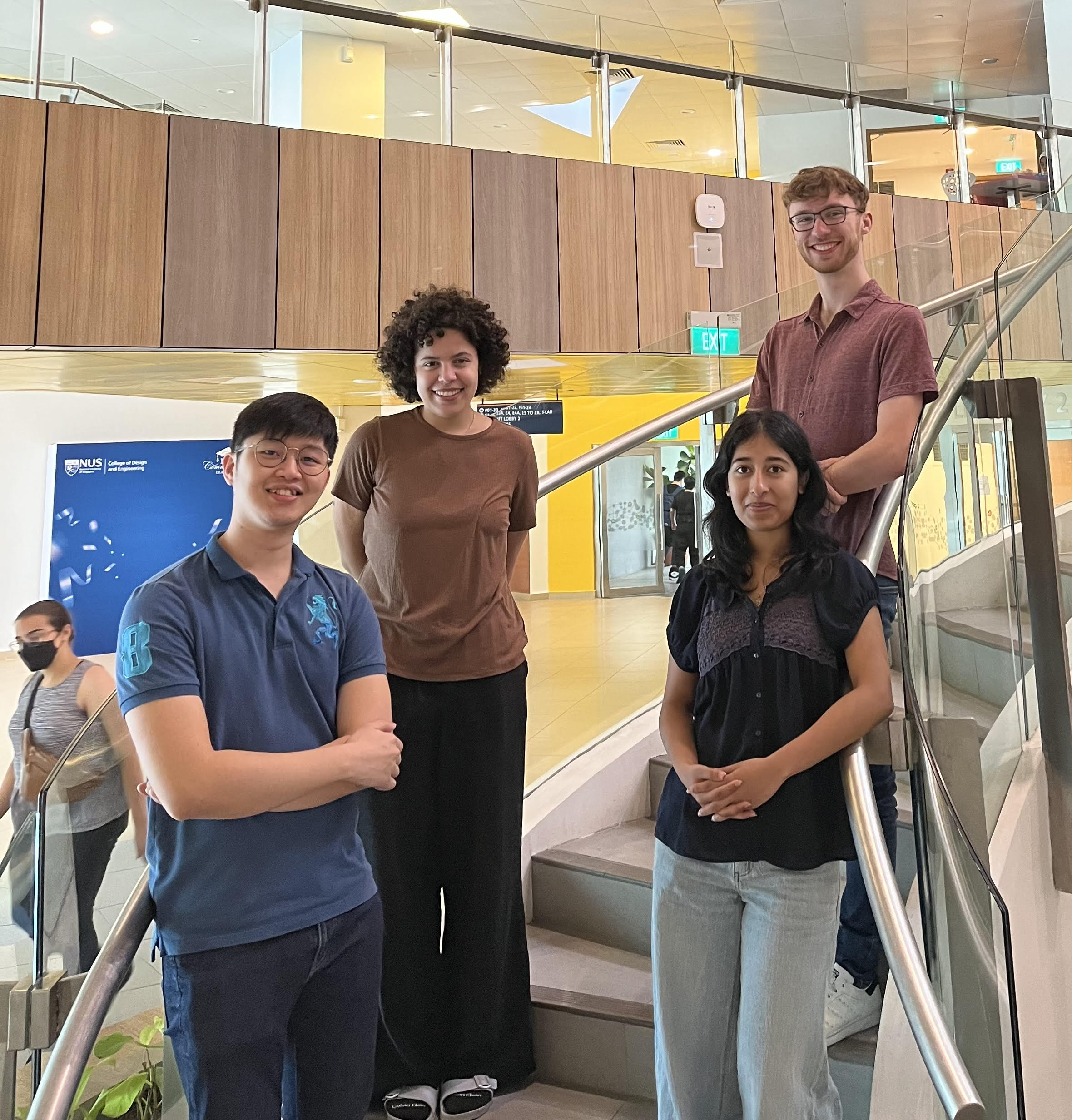Gelling Together A Greener World
By: Benjamin Sailors, SEAS ’24

Benjamin with labmates.
GRIP: Engineering Research in Singapore
Every day, it seems there is another new headline about another new disaster facing humanity. Rising seas, waning forests, and just recently the devastating wildfires in Maui. Climate change seems destined to stoke an inexorable decline of life as we know it—that is unless we can do something about it.
So far at Penn, I have focused most of my efforts in this field on exploring the public policy avenues to achieve success against climate change. Through organizations like the Perry World House, I have met with leading environmentalists and advocates to learn from their experiences.
However, as an engineer, I have always been interested in a more hands-on technological approach too. So, I was overjoyed when I came to Singapore and discovered all the details of what I would be working on this summer! The focus of my lab group is on completely organic and green materials. So, every aspect of the hydrogel I am fabricating is bio-derived: the main component is cellulose, and the other components are all found naturally. With other useful characteristics like self-healing, transparency, mechanical strength, and good conductivity, this material has applications in many areas of sensor design. Hopefully, in the future, its use will be expanded to cover new flexible electronics and wearable devices.
My professor is extremely interested in the green circular economy, and I absolutely love it! This focus on green and renewable materials, prevalent throughout the whole lab, makes the work extra rewarding because of the immense potential it has to bring good to the world. I look forward to taking the lessons I am learning here in Singapore and applying them back to my own work back in the lab at Penn. It is incredible to know that scientists, researchers, and policymakers the world over are all collaborating together to help deliver the world a safer future.
As well, in terms of ethical questions, it is much easier to sleep at night knowing that the material I am testing is fully recyclable and non-toxic. So, if it is able to be used in the future, I should not have any guilt about introducing something dangerous into the world. For example, I recently watched a documentary on Thomas Midgley Jr. This man was responsible for both leaded gasoline and Freon: two of the most environmentally damaging products to ever exist. The harm that his inventions caused is unfathomable, countless generations have been, and will continue to be harmed, by what he chose to study.
Therefore, it feels good to work with a team committed to sustainability and making the world a better place!
The Global Research and Internship Program (GRIP) provides outstanding undergraduate and graduate students the opportunity to intern or conduct research abroad for 8 to 12 weeks over the summer. Participants gain career-enhancing experience and global exposure that is essential in a global workforce.